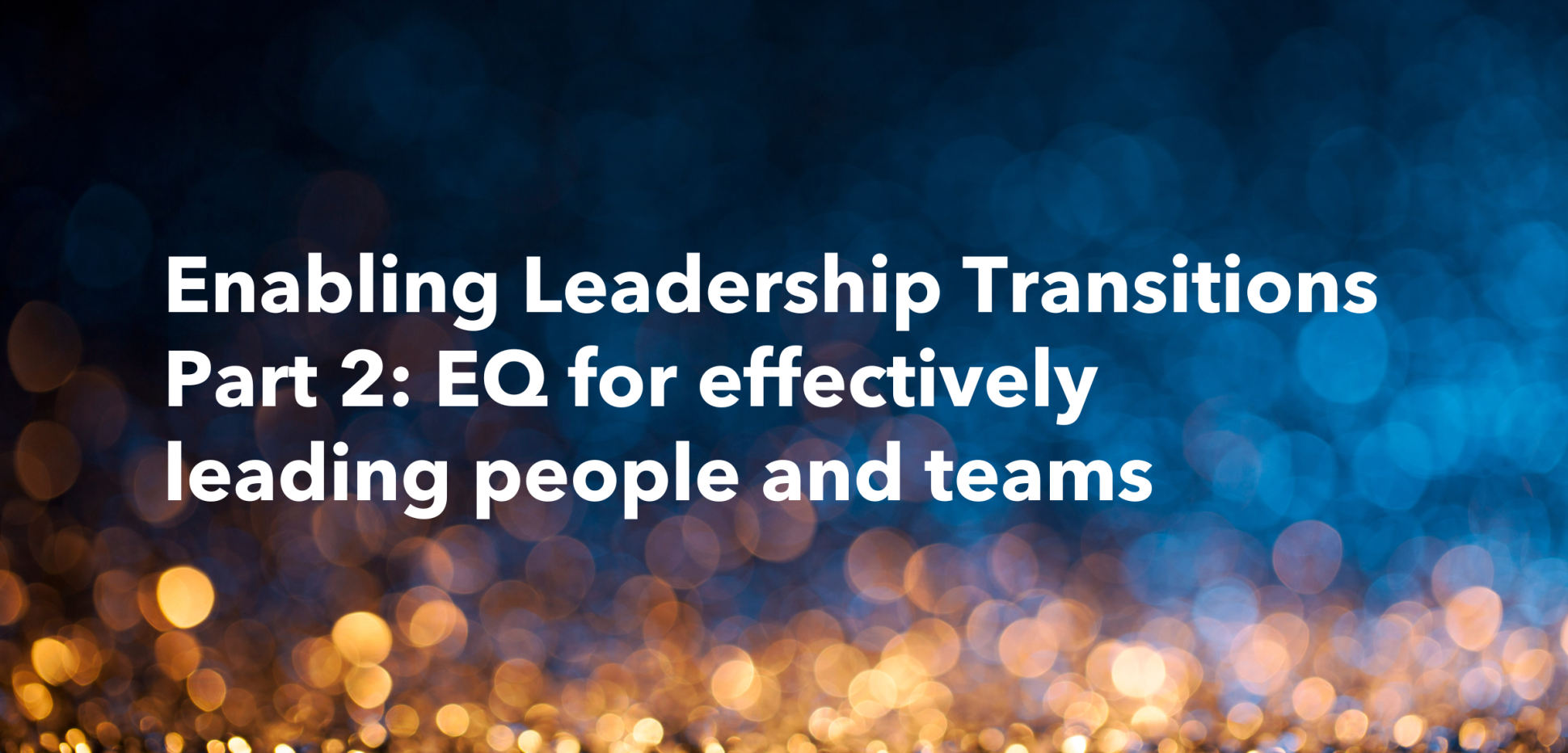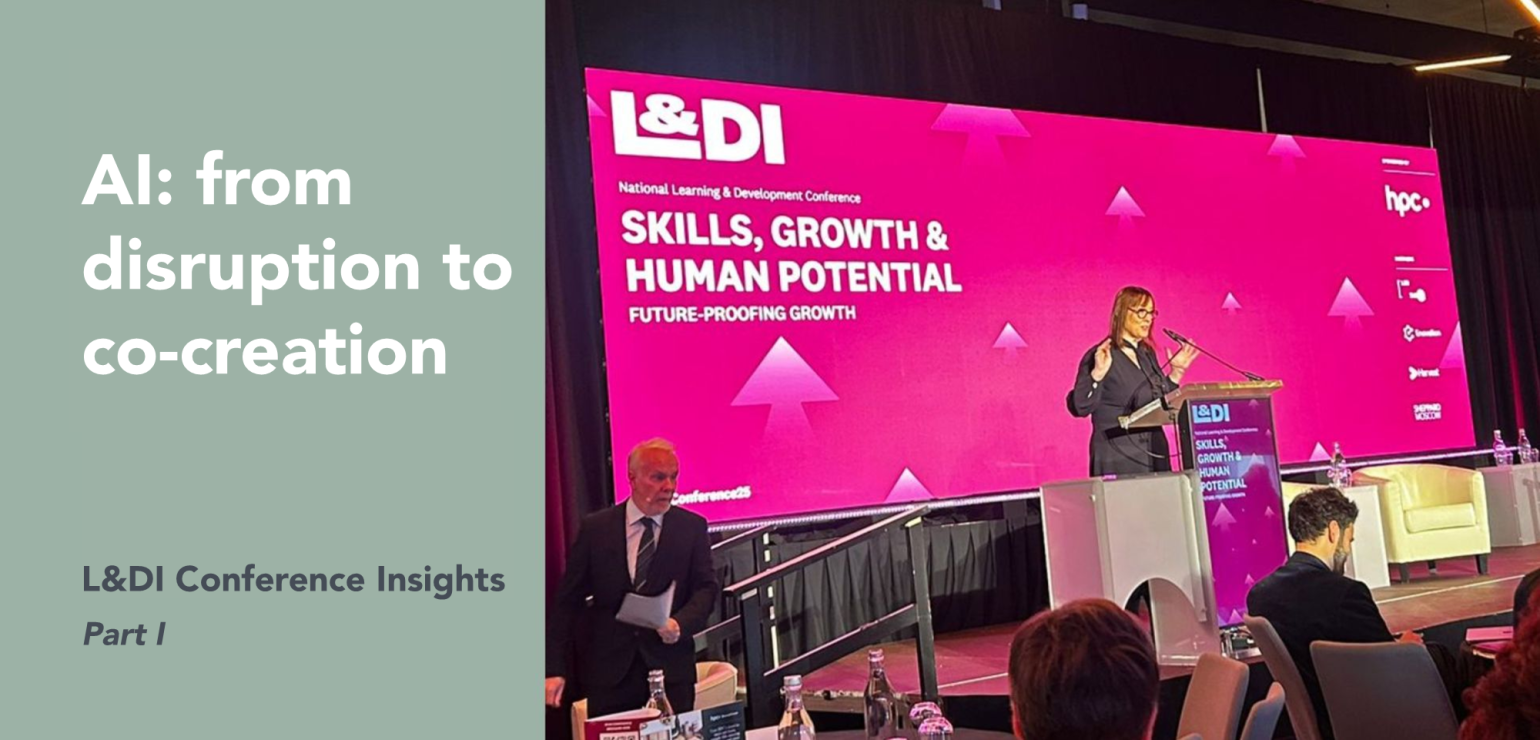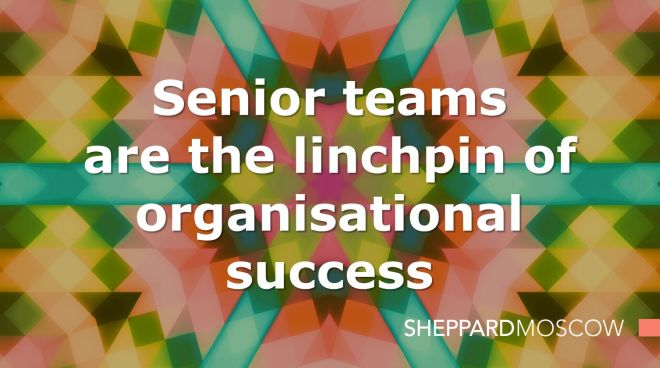EQ for leading people and teams

This is part two of a four-part series, taking you through a leadership development programme we partner with our global financial institution client to enable newly appointed senior, mid-career leaders with a huge span of control, often spread across geographies and time zones, take the next step in leadership with confidence, self-awareness and agility.
Building on the Foundation Stage of the programme where we support participants to reflect on their development goals and on creating deeper connection with programme peers, next comes Module 1 – Managing People and Teams – which takes them through a process of becoming more self-aware, deepening their emotional intelligence, and learning how to truly connect, collaborate with and inspire their teams and stakeholders.
If you haven’t read part one detailing the Foundation Stage, follow this link!
The Foundation Stage set the tone of the programme by building a climate of psychological safety and mutual respect between sponsors, participants, and within the cohort itself. In Module 1, we broaden the focus on the self to deepen their understanding of how they as leaders relate to their teams and colleagues around them, providing them with tools to build personal and productive relationships.
The biggest realization for many leaders on the programme is that people management is not an add-on to the real job – it IS the job. The module is set up to encourage participants to make this psychological shift – from technical doer to people leader.
Emotional intelligence and vulnerability
One of the ways we elucidate this for the participants is to place a strong learning focus on emotional intelligence – which means helping them deepen their self-awareness by posing catalytic questions such as:
- What are my triggers?
- What are my strengths?
- What are the things that enable me to build relationships and to deliver through others?
Being vulnerable as a leader is challenging, and part of building emotional intelligence involves embracing one’s humanness and giving space for others to do the same. Creating the conditions for this vulnerability to emerge is an important aspect of the development experience of Module 1, and something which continues throughout the programme.
Enriching connections and team cohesion
We also work with participants to develop the practical skills they need to enable and develop the teams they lead – including showing empathy and care for others, listening well, coaching, directing and collaborating across team boundaries.
Many of these skills are underpinned by the ability to step into the shoes of other people and show genuine care for them. Not thinking of team members as subordinates, but really caring for the whole person – their family lives, their hopes and dreams, and aspirations – so that they can bring the very best of themselves to their work every day.
Another critical aspect of this module is understanding what makes an effective team. What are the conditions that create high performing teams? What can derail a team? What is the leader’s role in contributing to an effective, psychologically safe, innovative team environment?
Clinics and the power of peer coaching
The ‘clinic’ format features throughout the programme journey – a facilitated peer coaching session where we bring together participants in mixed groups to share whatever people management or leadership issues are live for them, whether that's to do with a person in their team, the whole team, or maybe even an issue with a stakeholder or their boss. Together they work through these challenges, and in the process, develop their peer coaching skills whilst learning from one another. This sense of community and connection was created in the Foundation Stage of the programme and comes to the fore again here. These clinic groups are formed to help participants meet people from different parts of the organisation and give everyone space for reflection and connection. They create a sense of not being alone, that other people are grappling with similar issues.
A moment of personal reflection
Module 1 can be challenging as it does encourage these leaders to lean into the discomfort of emotional vulnerability and also to question their preconceived notions of what a good leader looks like. This module also highlights the importance of a solid inter-cohort climate as participants open up with their fellow leaders about their leadership challenges and concerns.
Before we dive into Module 2, we run a coaching session centred on an EQi assessment, linked to the personal goals identified in the Foundation Stage. This is another of deepening self-awareness, and helps participants keep sight of their high-level goals and track their development.

 Aoife Keane
Aoife Keane  Tsheli Lujabe
Tsheli Lujabe 

